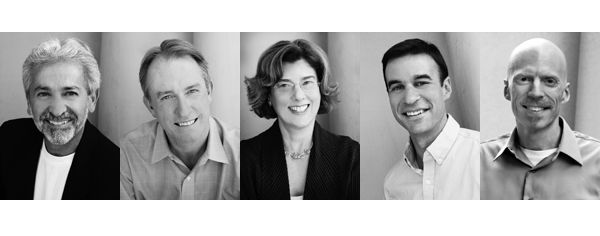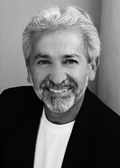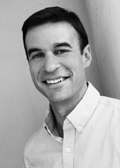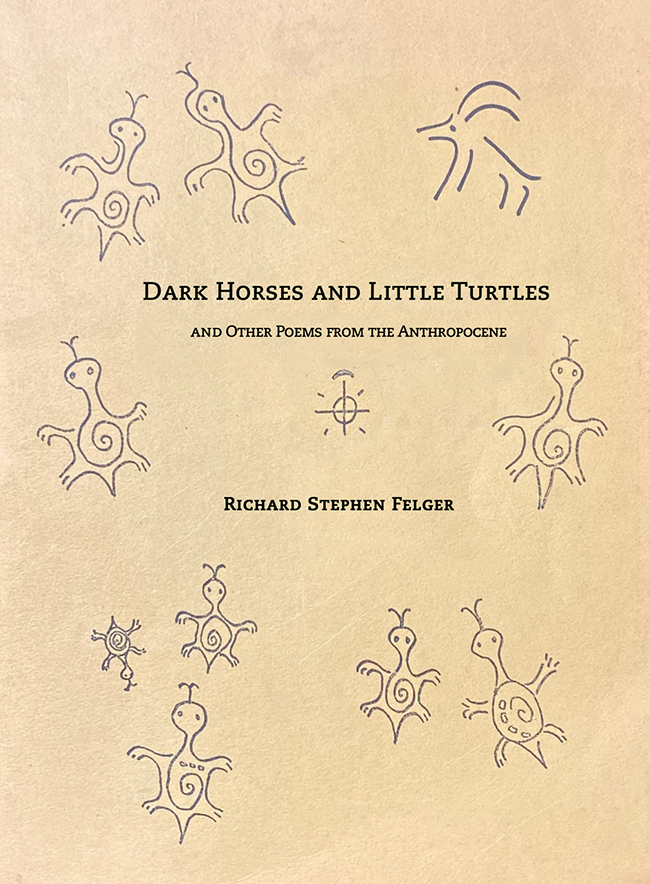Angles on Achieving Happiness
In a Downtown lecture series, five University of Arizona faculty members share how to utilize scientific research and ancient philosophies as tools for improving life.

Photos courtesy UA College of Social and Behavioral Sciences
In unscientific Facebook and verbal polls conducted by this writer, the question “What is your definition of happiness?” elicited responses ranging from one-word certainties (acceptance, self-respect, good friends, love) to a list of experiences that bring pleasure (a breeze, music, silence, the scent of desert rain); to smart-aleck (a warm gun) to grumpy and demeaning (your “research” is quixotic).
Certainly, individual definitions of happiness are subjective (not everyone finds happiness in solitude and camping), but, as a species – can we define what it is to be happy on some baseline level? Basic provisions for survival probably need to initially be met: water, food, clothing, shelter. Beyond that, what else is universal? Perhaps music, art and homage to a greater being or purpose; such themes have been a running thread in the cultural artifacts of us Homo sapiens.
The question has been rooted in philosophical thought for centuries, but recent scientific inquiries are quantifying elements of happiness in ways that, viscerally, most of us already know. Taking care of our physicality translates to well-being; exercising kicks in brain chemistry that influences our moods via our neurotransmitters. Conversely, it is difficult to be happy when you are sick. Why? Because you feel like crap, you are in pain, et cetera. We get satisfaction out of a job well done – and when people appreciate our work and say thank you, that unexpected benefit elevates our self-esteem. The scientific explanations can be complex, but the principles are simple and sometimes we need reminders on how to achieve a higher state of existence.
The questions, answers and implications are huge. The more satisfied, content or fulfilled a person is can directly affect their families, friends and neighbors. Our interactions with each other have a ripple effect – how many times have you been the brunt of displaced anger and subsequently snarled at the next person who crossed your path? What about the times when a random smile inspired you to randomly smile at someone else? We can create better communities and a better world by thinking about and acting on the concepts that will be shared at the Fox Theatre weekly on Wednesdays from Oct. 16 through Nov. 13, hosted and organized by the UA’s College of Social and Behavioral Sciences.
While each UA faculty member has a different lens through which they will present their topics, the common thread and definition of happiness they share is the idea of creating a life of well-being and meaning.

Celestino Fernandez, Ph.D.
As the UA’s School of Sociology Undergraduate Studies Director Celestino Fernandez, Ph.D., describes: “People most consistently say that the following three things make them happy, and these are certainly sociological: family and friends, doing good for others, being engaged in meaningful activities. No one on their deathbed wishes they had more time to live so they could acquire more stuff! They wish they had more time to spend with family and friends.
“Yes, subjectivity is involved in the definition of happiness but there is a great deal of research that demonstrates that when we measure happiness, the nuances of the variations in the definitions do not matter.”
Fernandez’s lecture, “Pursuing and Finding Happiness,” on Oct. 16 opens the series with the major focus covering the fluctuations of an individual’s happiness based on age, income, education and other variables. It will also include “a substantive overview of the research on happiness from various social science fields” with the goal that the audience will have “a better understanding of why social scientists study happiness and some of the major findings on happiness, as well as some practical things they can apply in their daily lives to enhance their happiness.”

Dr. Charles Raison
Dr. Charles Raison, with the UA Department of Psychiatry and Norton School of Family and Consumer Sciences, observes that “the issue with happiness is – there’s this real risk in our world – that happiness becomes this commodified thing that you’ve got to pursue and if you don’t have it you are a loser, and that it is something you can almost purchase at a store, that it is a concrete thing. We know some very interesting things about happiness that argue against that. Part of what makes people really happy is unexpected benefit. So, some of the happiest times in people’s lives occur in paradoxical situations and it seems confusing unless you understand that the things that make humans happy are basic things like feeling like you have a meaning or purpose, feeling like the narrative arc of your life is telling a story that makes sense.”
Raison, who researches depression and ways to alleviate it, shares that “most people, especially in the modern world, when they really, really get unhappy for protracted periods and begin to have depression, they become more selfish, more self-centered, less able.”
Clearly, selfishness isn’t great for a community and his studies on Cognitively-Based Compassion Training – developed by Geshe Lobsang Tenzin Negi, Ph.D. – have preliminarily shown that (according to Psychiatry.arizona.edu/raison/cbct) “compassion training actually changes people’s daily behavior in ways likely to enhance emotional well-being, relationships, and improve physical health.”
On Oct. 23, Raison presents his findings in the lecture “Compassion Training as a Path to Genuine Happiness,” and explains that such training helps people to challenge their assumptions and perceptions of the world. “Basically, we are always looking at the world through this lens that falsifies it and does this damage and if you can see the world more as it is, it opens up opportunities and especially opportunities for happiness.”

Dr. Esther Sternberg
While our attitudes can be helped through mental exercises, our well-being is most certainly influenced by our surroundings. Dr. Esther Sternberg, who joined the UA in 2012 as a Professor of Medicine and the Research Director at the Arizona Center for Integrative Medicine with joint appointments in the UA Institute of the Environment and the UA College of Architecture, Planning, and Landscape Architecture, has done extensive research on mind-body interactions in illness and healing and the inter-relationships of mind-body-stress-wellness and environment.
Sternberg says her lecture on Oct. 30, “How Our Surroundings Influence Happiness and Health,” will “focus on well-being in its larger sense and specifically: What are the elements of the external world, the environment, the world we live in, the natural environment, the built environment, that can contribute to that sense of well-being? And, thereby, help us maintain health and optimize health – both emotional and physical?
“Is it what you see, is it what you hear, is it what you smell, is it what you touch, is it what you do in a space that can help you heal and help you find this sense of well-being? The answer is, all of the above, of course. The exciting thing we are doing here at the University of Arizona as I create the Institute on Place and Well-Being is part of that. The research that we’re going to be doing is going to address all of those questions.
“It’s very exciting to try to tease apart these different elements of place and how they affect the brain – and in turn emotions, and in turn the immune system, and in turn health. And by doing that, by understanding how each of these elements alone and then together can help people shift from the stress mode to a relaxation mode, from a negative mood mode to a happiness mode, how they can help shift the immune system from a diseased mode to a health mode, then people can help themselves. You can structure your environment in such a way that you can find your own place of peace, your own place of happiness, and your own place of healing.”

David Raichlen, Ph.D.
To understand our biological systems, it is imperative to understand how our physiology evolved and how that ties into well-being. Knowing that our brains and bodies communicate with each other, it is important to delve into the “why” of our physical make-up. As hunters and gatherers, Homo sapiens had to be structured to endure the demands of survival. Our current fast food nation, office work and inactive lifestyle don’t gel with our evolution. David Raichlen, Ph.D., researcher and associate professor at the UA School of Anthropology, is looking at how and why our present sedentary ways impact our physical and mental health.
Raichlen explains that his lecture on Nov. 6, “The Evolutionary Links between Exercise and Happiness,” is going to cover, “broadly, how we know exercise improves people’s mood and psychological state and discuss the bigger research projects that have shown that. Then, spend the majority of the time discussing our work in the lab here, linking that change in mood to our evolutionary history, placing the links between exercise and happiness into that evolutionary framework and perspective. Why does exercise make us happy? I’m hoping this speaks to a broader question about how any behavior can have an effect on our mood. What we’ve done in this study is provide at least one sort of way of thinking about why behaviors affect the way you feel. It’s not the only way it happens, but it is one way that it can happen. So, it gives you the opportunity to think about any particular behavior that makes you feel good. There may be an evolutionary perspective that can help explain why those behaviors are enjoyable and can change your mood and make you feel happy.”
Capping off the series on Nov. 13 is Daniel C. Russell’s presentation, “Happiness – A Feeling or a Future?” Russell, Ph.D. philosophy professor at UA’s Center for the Philosophy of Freedom, brings an ancient philosophical approach to the quest of achieving happiness.

Daniel C. Russell, Ph.D.
“By ‘happiness’ we often mean a present state – how I’m feeling right now, or maybe how I’m feeling these days. Those states are very real and very important. But I’m looking at something else, because ‘happiness’ can also be the name of a whole life of involvement in things I find meaningful and fulfilling.
“So, it’s worth taking a moment to think about happiness not just as how you want to feel but as what you ultimately want your life to be. That sort of happiness means finding things to live for. One way to know when you’ve found things to live for, though, is when you have something to lose. That’s the catch for us. As important as feeling good is, we actually risk a lot of sorrow, frustration, and disappointment for the sake of happiness; we realize that no-risk happiness isn’t really happiness. Unfortunately, a lot of what people hear about happiness focuses just on feeling good, as if that were the whole story. I think we can do a lot better.
“Simply put, we think about happiness because we care about what, in the end, we do with our lives. That, I think, is exactly the right perspective, and that is why I have found it worthwhile to keep exploring this ancient Greek perspective on happiness.”
The free lectures start at 6:30 p.m. each Wednesday, from Oct. 16 to Nov. 13. Tickets, four maximum per person, can be picked up from the Fox Theatre box office, 17 W. Congress St., starting at 11 a.m. on the day of the lecture. More information is at DowntownLectures.arizona.edu.
Category: Community, DOWNTOWN / UNIVERSITY / 4TH AVE, Events




